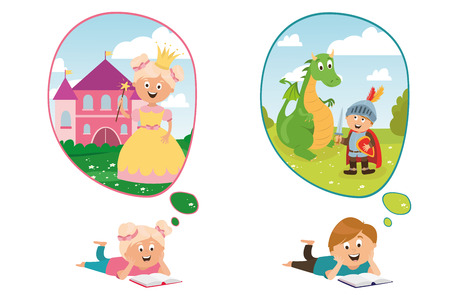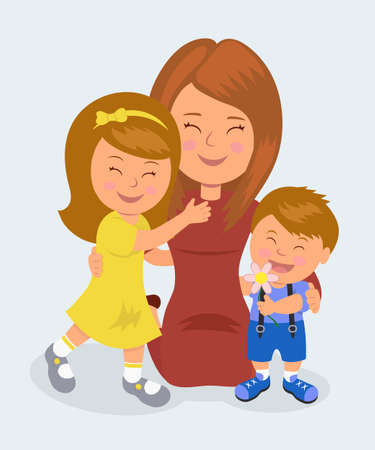Introduction to Gross Motor Skills
Understanding your infant’s development is a journey filled with curiosity and wonder. One of the most significant milestones in early childhood is the progression of gross motor skills. These abilities involve the use of large muscle groups to perform everyday activities such as sitting, crawling, standing, and walking. In the UK, where outdoor play and physical activity are woven into family routines and school curriculums, nurturing these skills from infancy is vital. Gross motor development not only supports physical strength and coordination but also lays a foundation for lifelong health, emotional well-being, and confidence. As UK parents, recognising the importance of these fundamental movements helps you create supportive environments—whether it’s letting your little one explore local parks or joining baby groups at community centres. The table below offers a snapshot of why gross motor skills matter for your child’s overall growth:
| Aspect of Development | Role of Gross Motor Skills |
|---|---|
| Physical Health | Promotes muscle strength, bone health, and cardiovascular fitness |
| Emotional Well-being | Encourages self-confidence and resilience through active exploration |
| Cognitive Growth | Enhances spatial awareness and problem-solving by interacting with their environment |
| Social Skills | Fosters peer interaction during group activities and playtime |
By gaining an understanding of what gross motor skills entail and why they are crucial for infant development within a British context, you empower yourself to support your child’s healthy start—setting them up for success both now and in the future.
Key Gross Motor Milestones in Infancy
Understanding your baby’s gross motor development can feel overwhelming, but with guidance from UK Health Visitor milestones and NHS guidelines, British parents can gain a clear picture of what to expect during those crucial first years. Gross motor skills involve the large muscles that help babies move and explore their world—setting the foundation for more complex abilities as they grow. To offer clarity and reassurance, here is an overview of typical stages, including age ranges and what you might observe at each step.
| Age Range | Gross Motor Milestone | What Parents Might Notice |
|---|---|---|
| 0–3 months | Lifting head while on tummy | Baby briefly raises head during tummy time; movements are wobbly but gaining control |
| 3–6 months | Rolling over (front to back) | First rolls may be accidental; gradually becomes intentional as strength increases |
| 6–9 months | Sitting without support | Sits upright for short periods; uses hands for balance before sitting confidently alone |
| 9–12 months | Crawling and pulling to stand | Begins to crawl, shuffle or bottom-shuffle; starts pulling up using furniture for support |
| 12+ months | Standing and walking independently | Takes first steps unaided; walks with increasing confidence, often with some wobbles at first |
While these milestones provide a helpful framework, every child develops at their own pace. The NHS encourages parents not to worry if progress seems slow—some babies skip crawling altogether, moving straight to standing or walking. Instead of comparing your little one directly with others, use these milestones as gentle signposts. If you’re ever concerned about your child’s movement or muscle strength, your Health Visitor is there for advice and support—so you can nurture your baby’s unique journey with confidence.

3. Supporting Gross Motor Skill Development at Home
Encouraging your infant’s gross motor skills in the comfort of your own home is both rewarding and manageable, especially when you weave it into everyday British family routines. Creating opportunities for movement doesn’t require expensive equipment—just a little creativity and attention to safety, particularly considering the UK’s often unpredictable weather.
Practical Tips for Everyday Movement
- Tummy Time: Place a soft blanket on the living room floor or rug, allowing your baby supervised time on their tummy several times a day. This strengthens neck, back, and shoulder muscles.
- Rolling and Reaching: Scatter safe toys just out of reach to encourage rolling and stretching, perfect for play mats or nursery carpets.
- Cushion Obstacle Course: Build simple obstacle courses with sofa cushions or pillows to help babies practise crawling and climbing over soft surfaces.
Adapting Activities to British Home Life
- Rainy Days Indoors: Make use of hallways for crawling races or gentle ball games; kitchen floors are great for sliding toys back and forth.
- Parks and Green Spaces: When the weather allows, visit local parks—let your baby kick and wriggle on a picnic blanket or explore gentle slopes under close supervision.
Weather-Wise Activity Ideas
| Season | Activity | Tips |
|---|---|---|
| Spring/Summer | Paddling pools, outdoor tummy time, garden picnics | Always supervise closely, use sun hats & sunscreen |
| Autumn/Winter | Cushion forts, indoor crawling races, sensory play mats | Keep rooms warm, use layered clothing for flexibility |
Safety First: British Home Considerations
- Ensure all play areas are free from sharp corners or small objects that could be choking hazards.
- If using highchairs or playpens, always supervise and double-check safety locks.
Your home can become a nurturing playground where movement is celebrated as part of daily life—rain or shine. With these tailored activities and thoughtful adjustments to our unique UK setting, you’ll be supporting your child’s gross motor development in ways that feel natural and enjoyable for the whole family.
4. Recognising and Addressing Developmental Concerns
As parents, it’s natural to feel a mix of pride and anxiety as your baby grows and learns new movements. While every child develops at their own pace, understanding the typical timeline for gross motor skills can help you spot potential concerns early on. In the UK, support from your GP and Health Visitor is readily available if you have worries about your infant’s progress.
Spotting Signs of Delayed Motor Development
While slight variations are common, certain signs may indicate that your baby could benefit from further assessment. Here’s a helpful table outlining key milestones and when to seek advice:
| Age | Typical Milestone | When to Seek Advice |
|---|---|---|
| 6 months | Rolling over both ways, holding head steady | If not able to hold head up or roll over |
| 9 months | Sitting without support, starting to crawl | If not sitting with support or no attempt to move arms/legs purposefully |
| 12 months | Pulling to stand, cruising along furniture | If not bearing weight on legs or cannot sit independently |
| 18 months | Walking independently or with minimal support | If not walking or showing significant unsteadiness/frequent falls |
Navigating Support in the UK: Who to Consult?
If you’re concerned about your child’s development, your first port of call should be your Health Visitor or GP. Health Visitors are trained professionals who offer regular developmental checks in the early years. They can observe your child’s movements, provide reassurance, and guide you towards appropriate next steps if necessary. Your GP can also refer you to specialist services such as paediatric physiotherapists or occupational therapists for further assessment and intervention.
How Early Intervention Services Work in the UK
The NHS provides a robust support system for young children with developmental delays. Early identification is key to maximising positive outcomes for your child. If a delay is suspected, the process may include:
- Developmental Assessments: Conducted by paediatricians or therapists.
- Bespoke Action Plans: Tailored exercises and activities designed for home use.
- Regular Follow-Ups: Ongoing reviews with your local health team.
- Accessing Local Resources: Many areas offer parent-and-baby groups or classes supporting motor development (for example, Sure Start Children’s Centres).
Your Role as a Parent
Trust your instincts—no concern is too small when it comes to your child’s wellbeing. Open communication with professionals ensures you are supported every step of the way. Remember, seeking advice does not mean there is necessarily a problem; it simply helps you provide the best possible start for your little one.
5. The Importance of Outdoor Play and Local Resources
Outdoor play is a cornerstone in supporting infants’ gross motor development, providing unique opportunities for movement and exploration that are difficult to replicate indoors. In the UK, a wealth of parks, playgroups, and community resources are readily available for families, making it easier than ever to nurture your child’s physical growth while strengthening your parent-child bond.
Benefits of Parks and Outdoor Spaces
UK parks are designed with children’s safety and learning in mind, often featuring soft play surfaces, age-appropriate climbing frames, and wide-open lawns perfect for crawling or toddling. Fresh air and natural light not only benefit physical health but also stimulate sensory development. Regular trips to the park encourage infants to practice rolling, sitting, crawling, cruising, and eventually walking—all essential gross motor milestones.
Playgroups and Community Centres
Many communities across the UK host local playgroups and baby sessions in libraries or community centres. These environments offer safe spaces for movement and social interaction, with soft mats, ride-on toys, and supportive group activities. Attending these sessions introduces infants to new textures and equipment under supervision, while parents can connect with others, exchange ideas, and feel supported during their child’s developmental journey.
Accessible Local Opportunities
| Resource Type | Typical Activities | How to Access |
|---|---|---|
| Parks & Playgrounds | Crawling on grass, using swings/slides, balance beams | Find nearest via local council websites or apps like Green Flag Award |
| Playgroups & Stay-and-Play Sessions | Tummy time mats, soft blocks, interactive songs/dances | Check noticeboards at GP surgeries or Children’s Centres; search Netmums or local Facebook groups |
| Childrens Centres & Libraries | Baby yoga, sensory play sessions, rhyme time | Visit your borough council website for schedules and sign-up info |
| Nature Trails & Gardens | Pushing prams on paths, exploring textures (leaves/grass), observing wildlife | National Trust sites or Woodland Trust trails—many are free or low-cost entry for families |
Tips for Making the Most of Local Resources:
- Dress appropriately: UK weather is unpredictable—layer up so your infant can enjoy all seasons outdoors comfortably.
- Consistency matters: Short regular visits are more beneficial than occasional long outings. Try integrating outdoor play into your daily routine.
- Get involved: Join in with your child—crawling on the grass together or singing along at playgroup builds confidence and connection.
- Ask about accessibility: Many councils now ensure playgrounds have inclusive equipment suitable for babies of all abilities.
- Stay informed: Follow local parenting forums or council newsletters to learn about pop-up events like teddy bear picnics or baby-friendly sports days.
The UK’s rich tapestry of community resources empowers you to create positive early experiences around movement. By embracing these opportunities together, you’re not just supporting gross motor development—you’re laying foundations for resilience, curiosity, and joyful family memories.
6. Partnering With Early Years Professionals
Collaboration with early years professionals—such as nursery staff, childminders, and early years educators—is invaluable for supporting your infant’s gross motor development. In the UK, these professionals are trained to observe, encourage, and nurture children’s movement milestones in safe and stimulating settings. By building positive partnerships, parents can create a consistent approach that supports their child both at home and in early years settings.
Building Strong Relationships: Communication Is Key
Open communication lays the foundation for effective collaboration. Sharing information about your child’s interests, strengths, and any concerns allows nursery staff or childminders to tailor activities that support individual needs. Regular catch-ups—whether at drop-off, pick-up, or through daily diaries—help keep everyone aligned on your child’s progress and any new achievements.
Ways to Collaborate Effectively
| Strategy | How It Supports Your Child |
|---|---|
| Share observations from home | Helps staff understand what motivates your child and which skills they are working on |
| Ask for feedback | Keeps you informed of milestones reached in the setting; offers ideas to try at home |
| Attend parent meetings & workshops | Provides opportunities to learn about the curriculum and how gross motor skills are developed through play |
| Contribute to planning activities | Allows you to suggest favourite games or routines that support skill-building both at home and in the setting |
The Role of Early Years Professionals in Gross Motor Development
UK early years professionals follow the Early Years Foundation Stage (EYFS) framework, which emphasises physical development as a prime area of learning. Activities such as tummy time, crawling spaces, soft play equipment, and outdoor play are thoughtfully integrated into daily routines. By understanding this framework, parents can mirror similar practices at home to reinforce progress.
Nurturing a Supportive Environment Together
A collaborative partnership ensures that your child receives consistent encouragement across all environments. Celebrate small achievements together—like a first unaided step or mastering a climb—and discuss next steps for further growth. Remember, your engagement not only empowers your child but also strengthens the bond with those who care for them during these formative years.


